Back to the future: Researchers, teachers and students on life after the pandemic
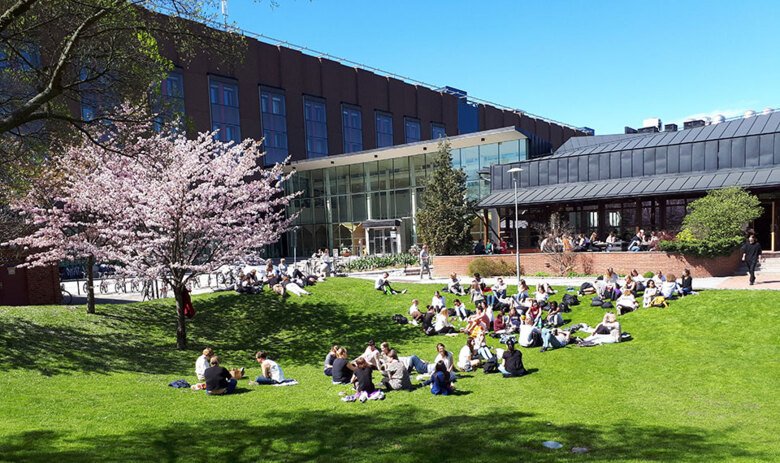
The pandemic still effects people around the world, but as restrictions are lifted, there are new challenges. At Karolinska Institutet, teachers are faced with hybrid teaching, researchers will return to previous research and students will find their way back to routines on campus. Here, they talk about the time before and during the pandemic and after restrictions were lifted.
As told to Magnus Trogen Pahlén.
Marianne Farnebo, researcher: ”The pandemic freed up time”
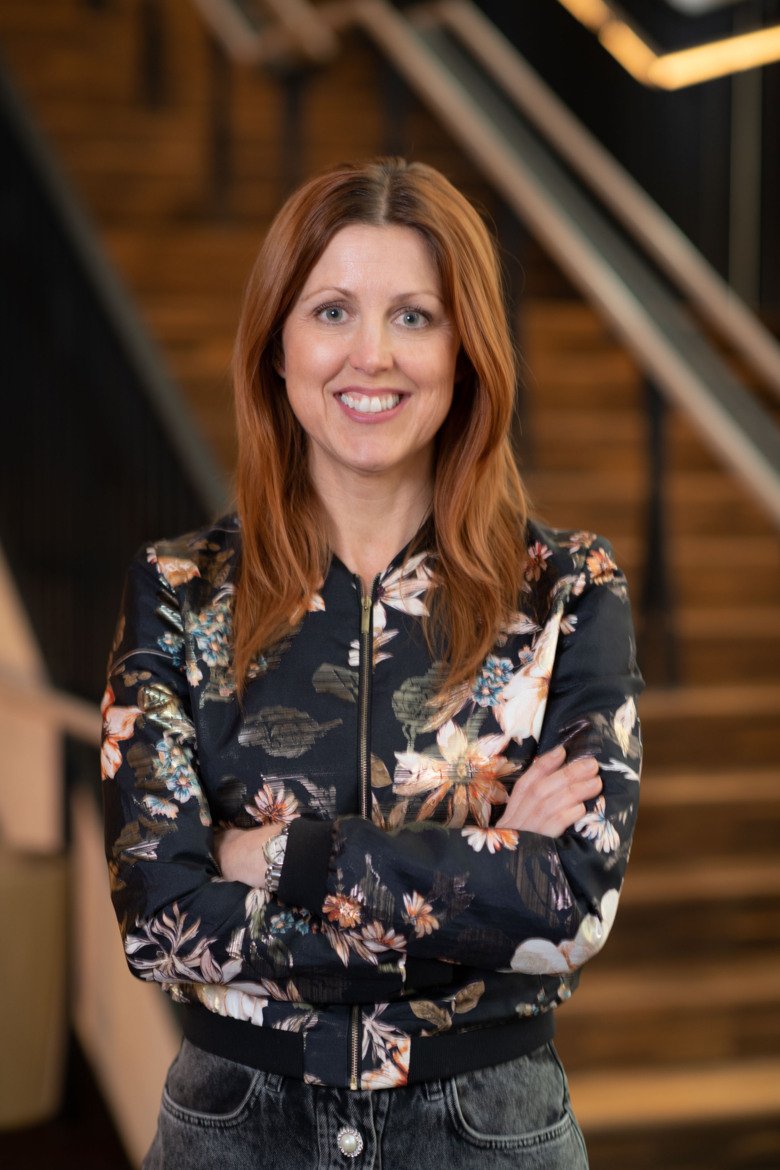
“When the pandemic first hit, I basically started to work in the lab on a full-time basis. In part, it was a way to motivate my colleagues to continue their laboratory research. Work cannot be done from home and many felt stressed about getting to their place of work. Several of my colleagues are from countries other than Sweden and questioned the Swedish strategy of dealing with the pandemic. It was very different from how other countries chose to act.
It soon became difficult to obtain materials for our experiments, such as lab reagents and various plastic items. But despite all this, my research was nevertheless only marginally affected. In the first six months, our production rate only decreased by about ten per cent.
One of the explanations for this is that the pandemic freed up time for research. During this period, all meetings, conferences and trips were cancelled. In addition, over time, we became better at meeting digitally.
Today we have sort of the opposite situation: we need to free up time to once again be able to travel and meet other researchers in our field. We see a boom in the number of conferences and seminars and would like to participate in those we see can be beneficial.”
Marianne Farnebo is a researcher at the Department of Cell and Molecular Biology and the Department of Biosciences and Nutrition.
Erik Johnsson, student: ”It was a big challenge to study at home”
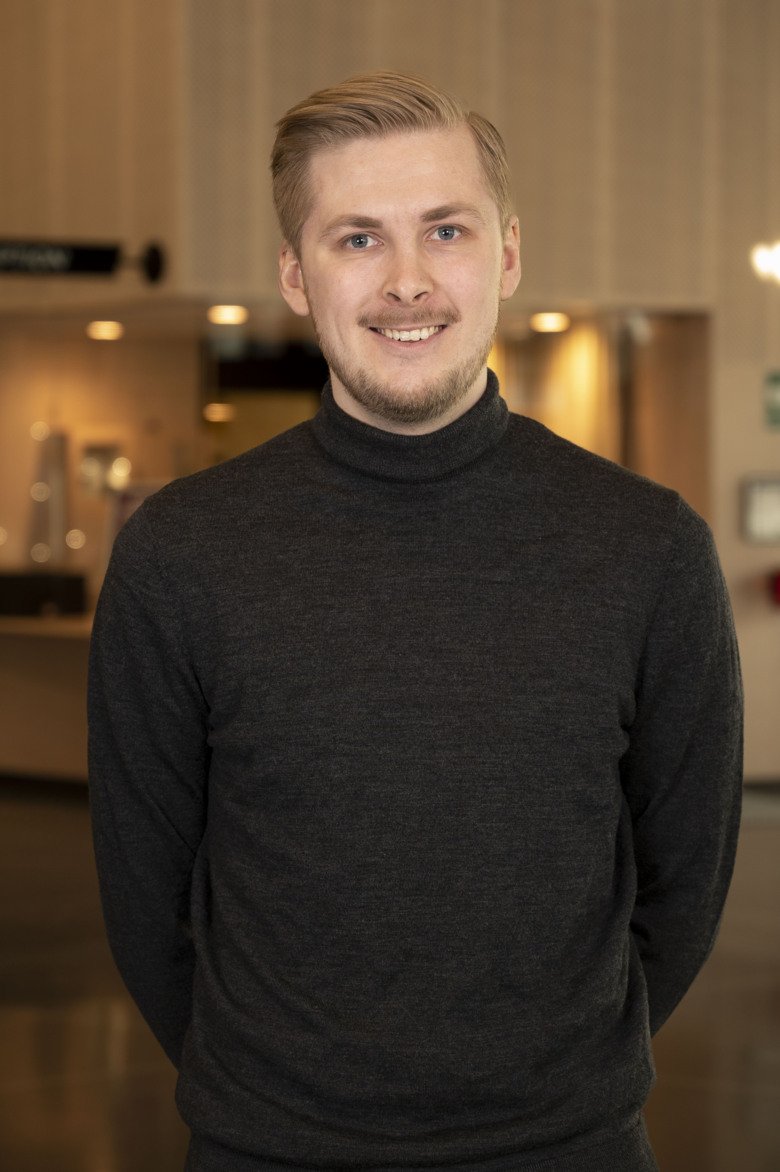
“The biggest change for me was to look upon my home as a place for education and learning. Previously, home was a place for leisure, not for studying. When all tuition became distance tuition, I was forced to change that mindset, and it was a major change.
Since neither the library nor the school's premises were available, there was no easy way to get hold of course literature. So I had to buy more literature than I would have done otherwise.
A major challenge in day-to-day life was to find the motivation to study. At home, there are many distractions that easily lead one’s thoughts away from studying. It also made me a little lazy to have all the conveniences around me. It was difficult to stick to routines and the right study technique.
One of the benefits of studying at home was that it saved me time, as I avoided the journeys to and from school. And thanks to all the lectures being digital, I was able to attend even when I was sick. I wouldn't have been able to do that if lectures had only been held on campus.
I am now working on my degree project, which means my study situation is the same again as it was during the pandemic. But in future courses, more of the education will take place on campus, and then it is important to switch back to my old usual routines once again. I am really looking forward to that!”
Erik Johnsson is a student in the nursing programme.
Linda Ekenros, teacher: ”Hybrid teaching after the restrictions was more challenging than distance teaching”
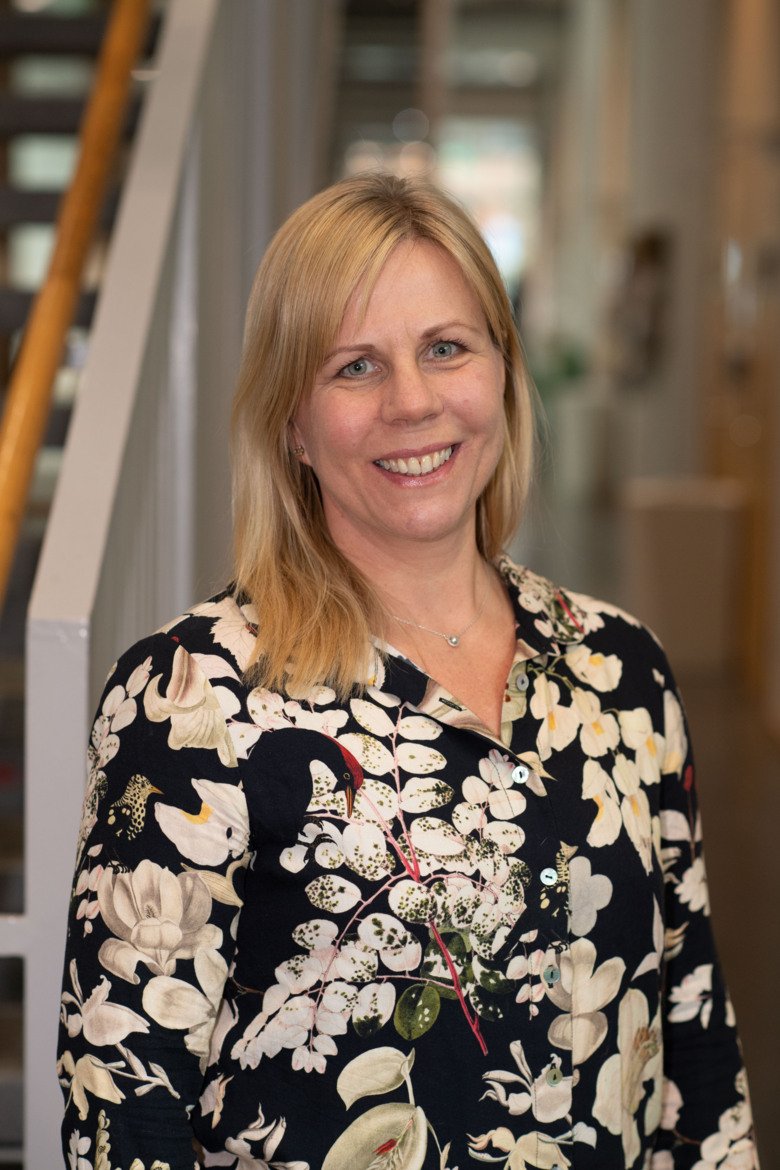
“When the government came up with its recommendation for distance teaching in March 2020, I was in the process of giving a first introductory lecture to about 80 expectant students. After the coffee break, I had to notify the students that we would probably not see each other anymore that term. Many of them went home convinced that the course would not take place at all. But we set off to find ways to transform the practical exercises we planned into effective online teaching.
In fact, we had already planned to develop some teaching in digital form. We now had to develop ways to also make the practical exercises digital. We worked both evenings and weekends to produce films that could be published as the course progressed. We then arranged daily live broadcasts where we did short demonstrations and referred to the recorded films and the literature.
The students were very grateful, especially those who did not think that the course would take place. However, we had to extend the term well into June to allow students to come to campus in small groups to take their examinations. Many already met on their own to study together or with family members. They solved the situation very well.
Something important to us was that the examinations should not have a lower level than usual. The students who were examined at the beginning of the pandemic face the same work assignments as everyone else.
Since 2020, we have varied different forms of hybrid teaching, as restrictions have changed. And it's actually been more challenging than the drastic start of distance teaching. It has not been easy to provide good access to both teachers and premises of the right size on all occasions.
Now we have returned to campus teaching, and we are also working on renewing parts of our recorded materials to ensure that it is of better quality. We are not in as much of a hurry now which makes it easier and the results better. The fact that we have returned to practical teaching together with the students is important because after their education they will meet patients and they also need practice in human interactions.”
Linda Ekenros is a teacher in the physiotherapist programme at the Department of Neurobiology, Care Sciences and Society.
Grace Marshall, master's student: ”We got to know Stockholm better thanks to the pandemic”
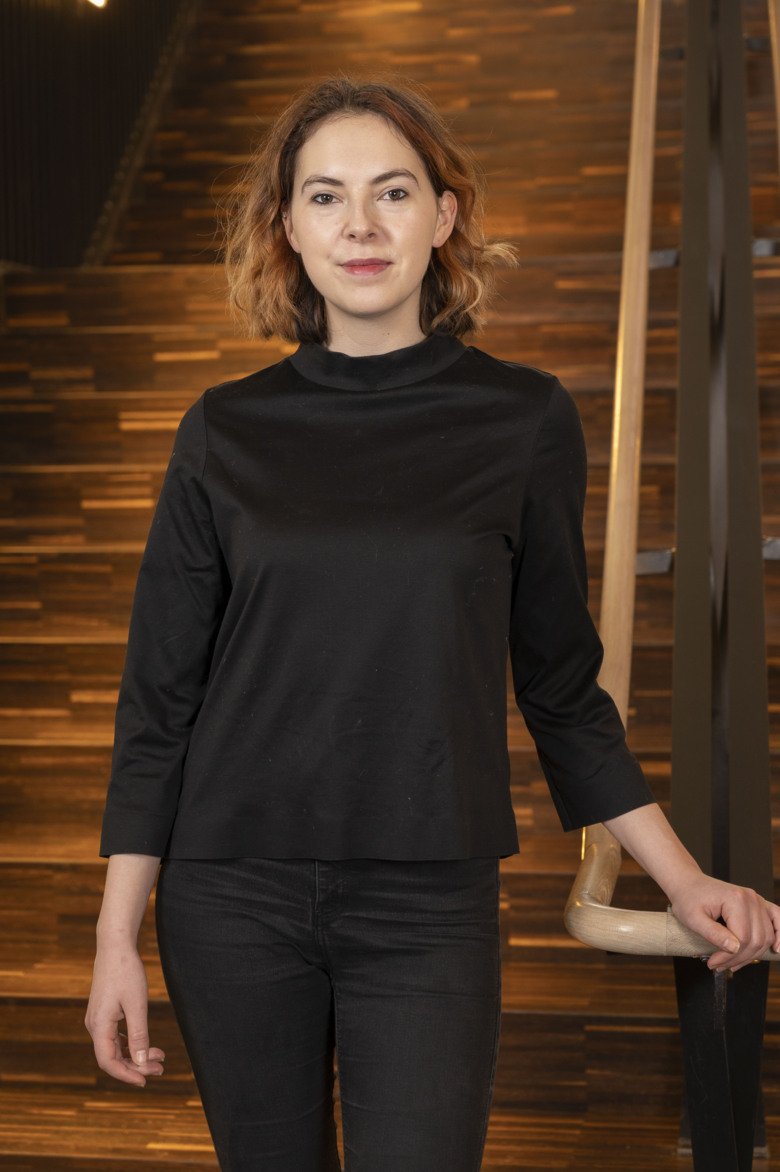
“I have met several Swedes who said that they feel sorry for me because I moved here in the middle of a pandemic. But there is no other country I would rather have been in during this period. My friends back home in England had a much harder time than I did.
When my master's programme started in the autumn term of 2021, we could choose between distance learning or lectures on campus. Since I was working for a non-profit organization in Holland at the time, I chose to stay there to continue to help them. So thanks to the flexible start of my studies, I was able to follow the lectures remotely from Holland throughout September.
After moving to Stockholm, I had time to attend lectures on campus for three weeks before the restrictions were tightened again. That short time made it harder to get to know my classmates. But since most people are quite outgoing and social, it still worked out well. We often met at different cafés in town to study. The fact that we were not tied to campus actually enabled us to get to know Stockholm better.
It was more difficult to get to know the teachers responsible for the courses because we did not meet them in other ways than online. However, I am impressed by their ability to switch teaching to online teaching. But I missed being able to talk to them in the same room as in a physical lesson. Of course, it is possible to ask questions even during an online lesson, but it either leads to a greater interruption or the answer often comes much later.
Our master's programme began with two of the most difficult parts of the programme, and it would have been easier to take in and understand if they had been on campus.
I'm now working on my degree project so there's no need to return to campus. After that, I would like to stay in Stockholm, even though my mother is constantly sending me job ads from London.”
Grace Marshall, master's student in Bioentrepreneurship.
Ujjwal Neogi, researcher: ”We restructured all our research to focus on COVID-19”
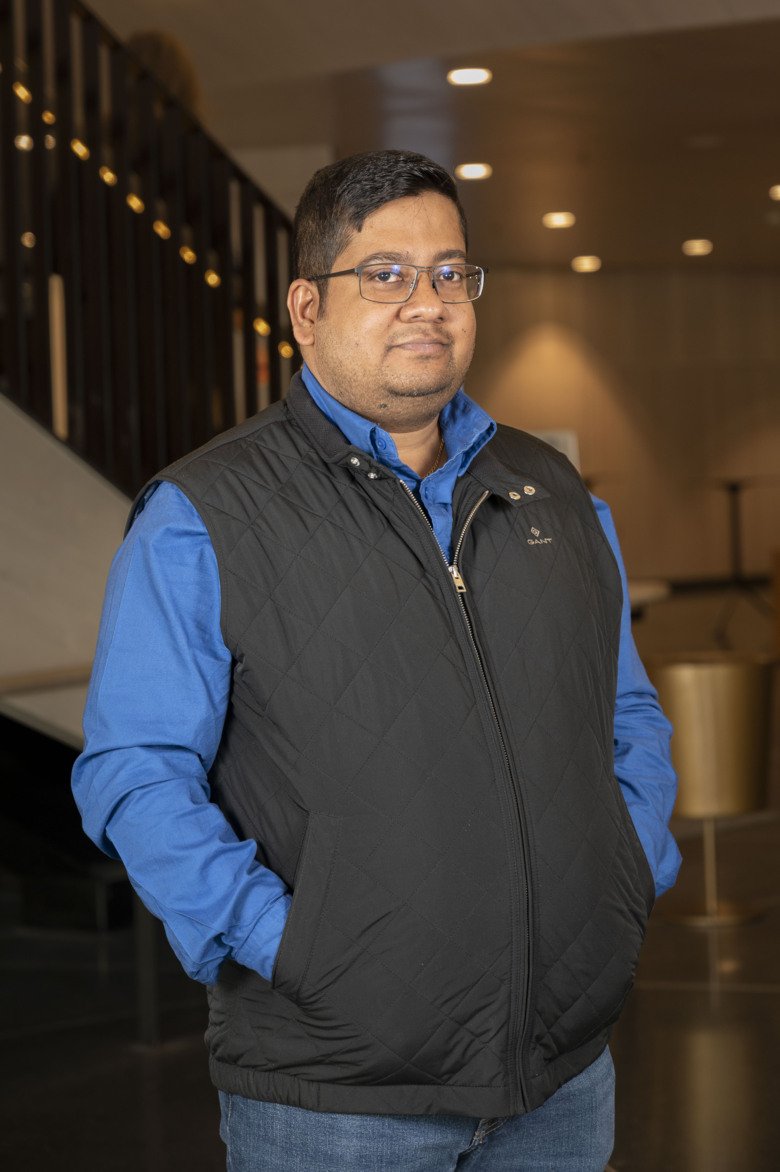
“The pandemic changed my research quite significantly. Before the outbreak, I worked with HIV with the goal of finding ways to prevent HIV from advancing in the body. But when the spread of SARS-CoV-2 took off, my research team switched its focus to covid-19. At the time, we were one of three labs in Sweden that could grow SARS-CoV-2 in the lab to investigate its properties. And we were able to use the methods that we had developed for research on HIV.
In addition, the Swedish Research Council permitted us to use parts of our funding to research SARS-CoV-2. Two of my graduate students also completely switched their focus to working with COVID-19.
While most of our research on HIV was put on hold, we switched to also be able to support Karolinska University Hospital in testing for COVID-19. Several of my employees helped out both evenings and weekends.
Personally, I already had experience of what it means to live and work during a pandemic. When India contracted swine flu in 2010, I worked at a hospital there. Those experiences meant that I quickly isolated myself to avoid unnecessary contact with other people. And this is also what my colleagues did.
At the same time, not being able to meet other people is a psychological strain. Of course, students who often live in overcrowded conditions are particularly affected, making it difficult to work from home. We, therefore, tried to meet regularly to socialize via Zoom. And also make sure we could really take advantage of the moments we had together in the lab.
We have now just taken up our research on HIV again. But it is still difficult to get hold of the reagents we need for our work. We will continue to apply a similar approach in the coming years as we did during the pandemic. However, our research will primarily focus on finding a functional cure for HIV.”
Ujjwal Neogi is a researcher at the Department of Laboratory Medicine.
Stories from the pandemic in spring 2020
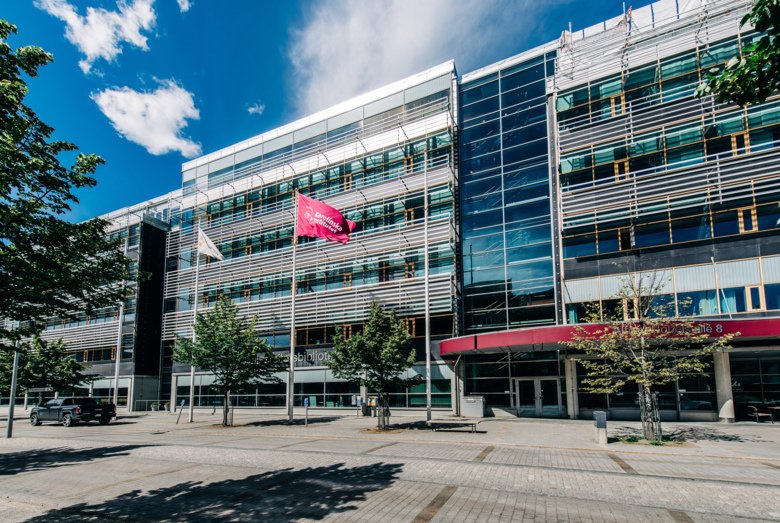 Photo: Erik Cronberg
Photo: Erik CronbergMajor transition for teachers and students
Since 15 June 2020, the requirements for distance learning have been eased and this autumn there will be a gradual return to KI's campus. But the unusual spring semester has yielded valuable lessons and experiences.
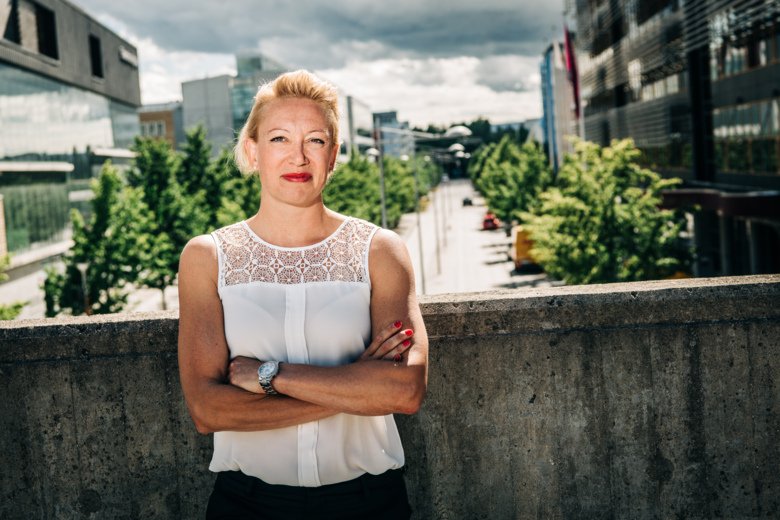 Photo: Erik Cronberg
Photo: Erik CronbergDistance learning imposed completely new demands
The campus closes on 18 March, but teaching must continue. For KI’s teachers, it’s the start of an intensive undertaking, one that proved particularly challenging for the Unit for Teaching and Learning.
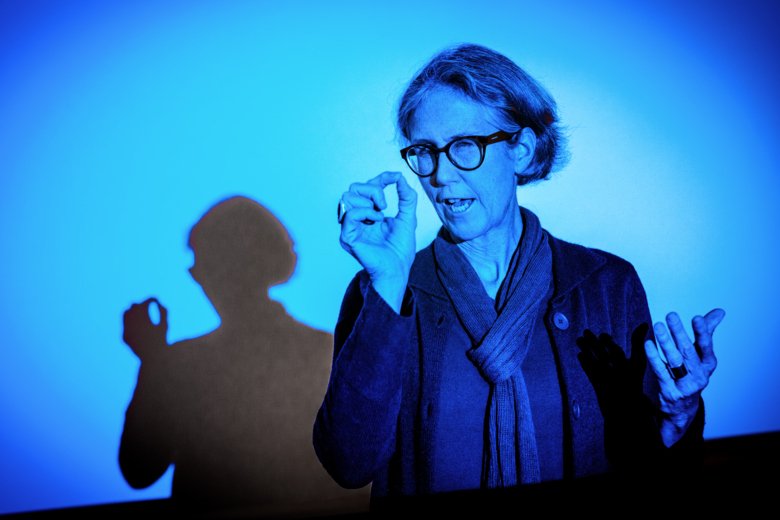 Photo: Gustav Mårtensson
Photo: Gustav MårtenssonGlimpses of a new reality
During spring 2020 all of our lives changed by the COVID-19 pandemic. Here are the stories that was sent in by staff, students, and alumni during this special period of time.
